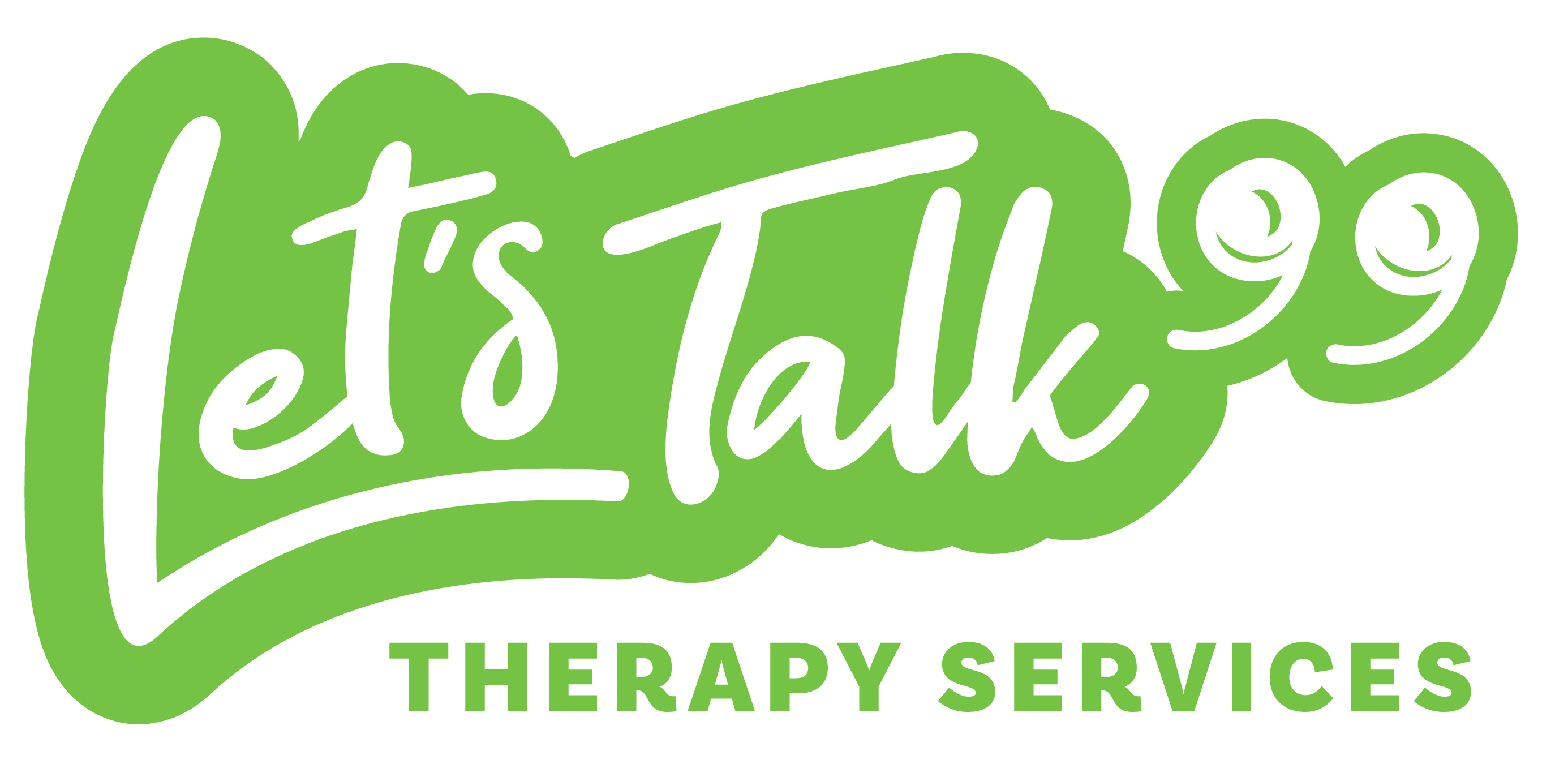Speech Therapy (ST)
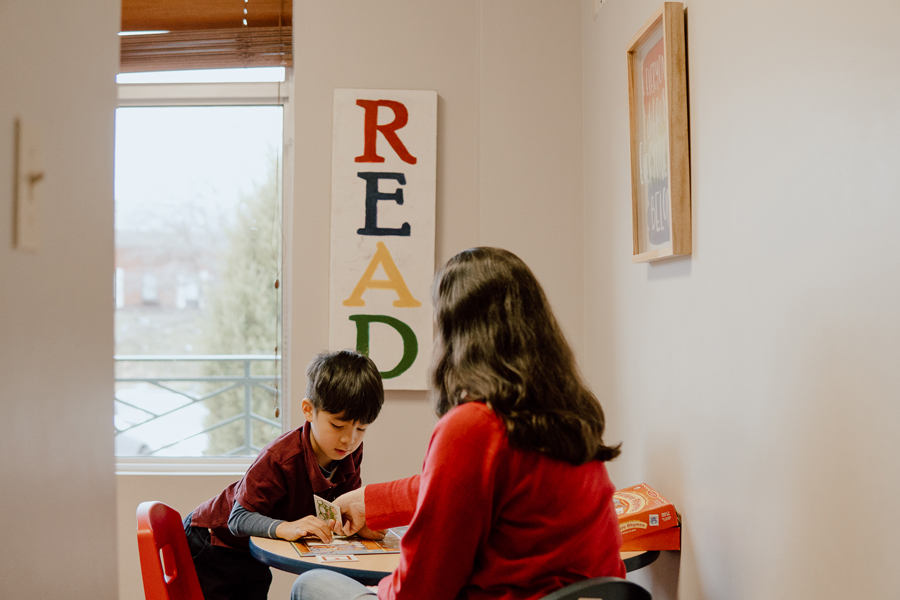
What is Speech Therapy?
If you’ve noticed your child has missed some of their speech milestones, stutters, or struggles with speaking, don’t worry. Speech therapy can help! Early childhood speech therapy addresses challenges with language, speech, communication, comprehension, and oral motor skills. We know seeing your child struggle in certain areas can feel scary. But we all have our struggles, and we’re here to help. We don’t believe in cold, clinical settings. Instead, we feel therapy can be fun and productive; it can be a place your child loves to come to and feels welcomed.
We see many children for speech services and see significant progress over time. We use play and games to help keep your child engaged and excited to learn. We also take a team approach so that you’re always a part of the plan and choices for your child’s treatment. At Let’s Talk Therapy in Little Rock, we love working with families and do our best to make you feel comfortable and informed.
Are you ready to get the ball moving but don’t know what to expect? If you want to get started, you can schedule a free 15-minute screening today and fill out the client intake form. After the screening, if we think your child is eligible for therapy, we will get the required referral from your child’s doctor and then do an evaluation. After the evaluation, if we’re a good fit, we develop a treatment plan for your child and enroll them in the services they need!
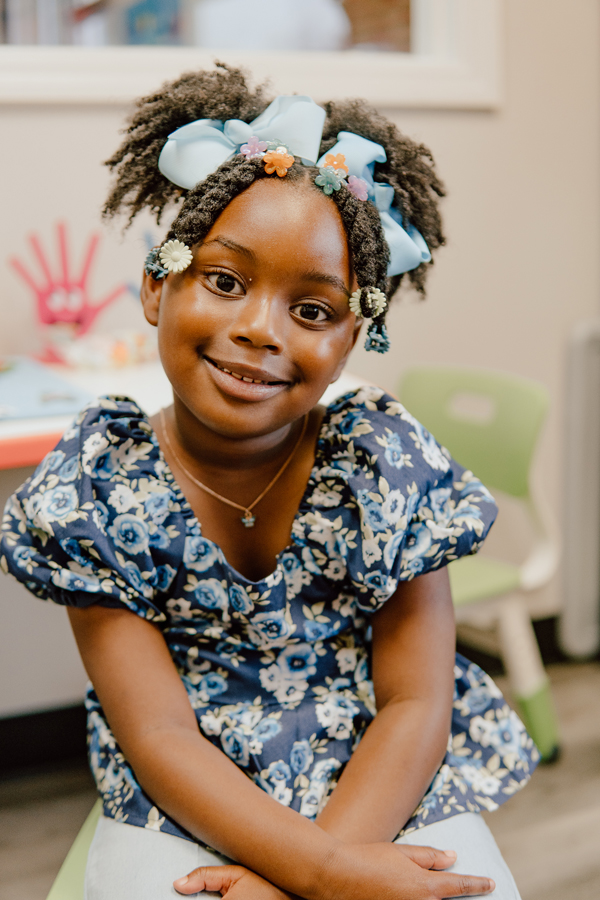
Who needs Speech Therapy?
1. Children who struggle with articulation:
Articulation refers to the way we use our lips, tongue, teeth, and other speech organs to produce sounds correctly. Sometimes, kids might have trouble saying certain sounds or words, which can make it hard for their friends and family to understand them. Our friendly and supportive therapists use fun and engaging activities to teach kids how to form sounds correctly.
2. Children who have language delays:
Language delay refers to when a child’s language development is slower than typical for their age, affecting their ability to understand and use words and sentences. Sometimes, kids might struggle to find the right words or put together sentences, making it challenging to communicate their thoughts and needs.
3. Children who stutter:
Stuttering is a condition where a child struggles to say a word or sentence and repeats certain sounds, words, or phrases before they can complete their thought. Stuttering is relatively common. According to the Stuttering Institute, 5% of children stutter during part of their childhood.
4. Children with developmental delays:
Developmental disorders are the conditions and delays that arise during a child’s development. In speech and language, there are a three different kinds of delays: receptive and expressive language, as well as speech.
5. Children with autism:
Autism is a neurological disorder and may affect a child’s social, communicative, and verbal skills. Some children with autism may be non-verbal and have to communicate in ways outside of speech. In speech therapy, they can learn about vital social norms and cues in conversations in addition to speech and language skills. Children who are non–verbal can learn how to communicate using visuals and other aids.
6. Children with childhood apraxia:
Childhood apraxia is a condition where children struggle to form words using their facial muscles. Generally, the symptoms of childhood apraxia are seen around the ages of 18 months to 2 years.
7. Children with learning disabilities:
Children with learning disabilities struggle in a specific learning area while performing well in other areas.
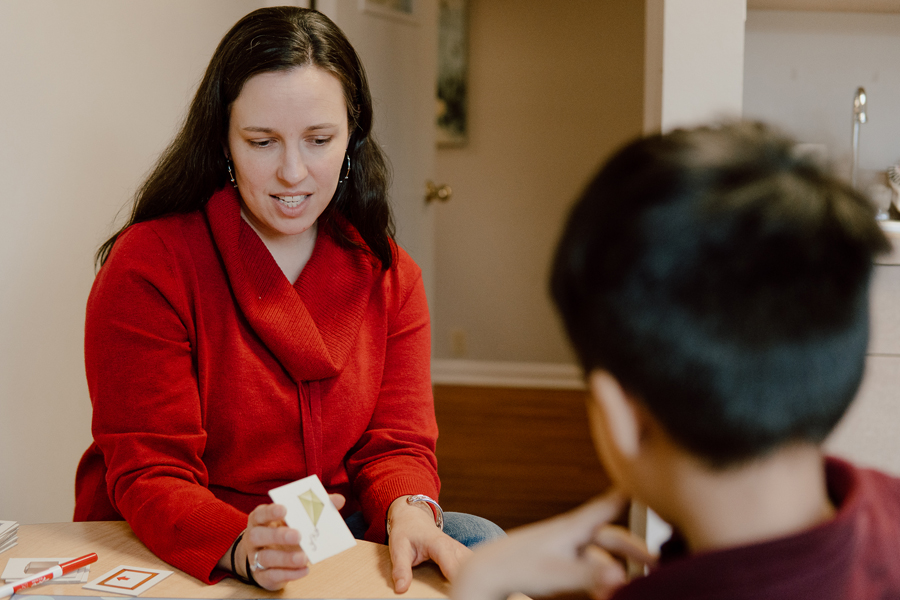
What happens during Speech Therapy?
We will work on several factors integral to speech for early childhood speech therapy. We consider the more abstract side, such as vocabulary, comprehension, fluency, and social skills. We weave play and games into speech therapy so your child may learn while having fun. We strive for lasting results that will breed self-confidence and pride in progress.
Speech therapy complements your child’s learning, helping them achieve academic success in daycare and school. Furthermore, it can help children feel more confident at school and in other social situations. In speech therapy, we practice conversation norms in addition to the mechanics of speech. This practice is essential for children to make friends and relate to their peers.
Since many of the same muscles are used, some children with speech difficulties may also have challenges with feeding and eating. Depending on their needs, they may also qualify for occupational therapy. Occupational therapy helps them with necessary daily activities like self-care, hygiene, and eating. In such cases, occupational and speech therapy can help your child progress significantly.
Before we go into a list of the specific factors we work on in speech therapy, there are some words you’ll want to know. Like most scientific fields, there are many terms we may use that may be unfamiliar to you. It’s important to us that you don’t feel left behind. Here are a few essential words we frequently use and their meaning:
Articulation
Articulation refers to the clear pronunciation of words. Children who struggle with articulation may be hard to understand.
Language
Language refers to the ability to understand and use words and sentences to communicate effectively. This includes both receptive language, which is understanding what others say, and expressive language, which is using words and sentences to convey thoughts, needs, and ideas.
Fluency
Fluency refers to how clearly one can speak a language. Fluency is made up of several different components.
Apraxia
Apraxia is a neurological disorder that causes difficulties in producing clear and consistent speech. The brain is unable to make and deliver correct movement instructions to the body, and can struggle with lip, jaw, and tongue movements.
Pragmatics
Pragmatics explore the subtlety of communication in social situations. It helps account for implied meaning beyond the literal meaning and conversation norms such as taking turns.
Get involved with your child's development!
We are proud to offer a wealth of resources for parents! We know that entering the therapy world can be confusing, so we want to help you feel as informed and confident as possible. You can click the button below to find a list of valuable resources. We hope it helps!
Get involved with your child's development!
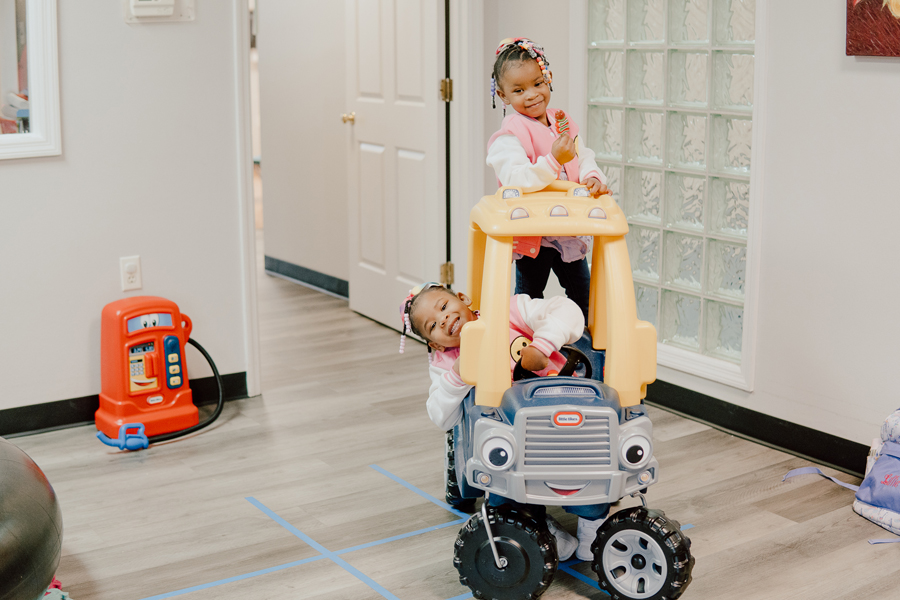
We are proud to offer a wealth of resources for parents! We know that entering the therapy world can be confusing, so we want to help you feel as informed and confident as possible. You can click the button below to find a list of valuable resources. We hope it helps!
